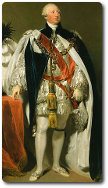Persuasion Contents
- Social / political context
- Religious / philosophical context
- Literary context
- Volume 1
- Volume 2
Volume 2, Chapter 10 / 22
Synopsis of Volume 2, Chapter 10 /22
Anne contrasts Captain Wentworth and Mr. Elliot and reiterates her desire to tell Lady Russell about Mr. Elliot. When he calls in the evening, she is very aware of the insincerity on the part of both he and Mrs. Clay, although she considers his behaviour the more disturbing of the two.
Anne's visit to Lady Russell is delayed by the arrival of Mary and Charles who have come to Bath with Mrs. Musgrove, Henrietta and Captain Harville. Anne learns that Henrietta's wedding has been brought forward on the strength of the increased income Charles Hayter will get from a living he has been given. Anne is glad that, with Louisa's imminent marriage to Captain Benwick, the fortunes of the two sisters should both improve at the same time.
Elizabeth opts for inviting the Musgrove party for an evening visit to avoid the embarrassment of giving a dinner where their reduced income would be more obvious.
Anne's visit to Mrs. Russell is delayed a second time in favour of a visit to Henrietta and her mother. Anne is heartily welcomed as part of the family and begins to help the others with their various needs. She is surprised when Captain Wentworth joins them. Mary asks Anne to confirm that it is Mr Eliot that she has spotted through the window, talking with Mrs. Clay, prompting others to exchange knowing looks about her involvement with Mr. Elliot.
Captain Wentworth unobtrusively takes the initiative to talk to Anne, but they are interrupted by the arrival of Sir Walter and Elizabeth, issuing invitations, which unexpectedly include Wentworth. Anne goes home, exhausted by the tension of the situation, but tells Mrs. Clay that she was seen with Mr. Elliot. Mrs. Clay makes excuses that she had been distracted and had forgotten to mention it.
Commentary on Volume 2, Chapter 10 / 22
opposed to Completely different from.
unperplexed Clear, uncomplicated.
that quarter of the mind which could not be opened to Lady Russell The part of her mind wrapped up in thoughts of Captain Wentworth.
They appear to so much advantage in company with each other … Mr. Elliot looking up with so much respect This is ironic because together they feed one another's vanity. It is also ironic because we know now what Mr. Elliot really thinks of Sir Walter
Anne admired the good acting of the friend Anne can be sure now of Mrs. Clay's insincerity.
contrasted with his former language His current behaviour does not match what he expressed in the letter to Mrs. Smith.
éclat public attention.
Mrs. Clay's selfishness was not so complicated Mrs. Clay's pursuit of Sir Walter is simpler to understand than Mr. Elliot's because she is a widow with two children to support. He is already very wealthy, and is undermining the happiness of others to get more wealth and a title.
States of the nation Writings about national affairs.
arrange Arranged. The implication is ‘over-arranged'.
rouge Red powder used like blusher for bringing colour to the cheeks.
shooting was over The shooting season ran from September 1 until January 31.
Charles Hayter had been applied to by a friend to hold a living for a youth … their marriage was likely to take place in a few months The living that Charles Hayter has been offered will eventually go to this young person, presumably when he comes of age. Meanwhile, Charles' income will increase enough from this living for him to marry.
preserves Privately owned land stocked with game for shooting.
it streightens him Having to come up with two daughters' dowries at once puts financial strain on him.
Such excellent parents … free from all those ambitious feelings … so much misconduct and misery Anne cannot fail to compare her father (and perhaps Lady Russell) with the Musgroves. Notice that she  doesn't fault them from delaying the marriage when there was insufficient money.
doesn't fault them from delaying the marriage when there was insufficient money.
young dab chick A baby grebe (water bird).
illiberal Closed-minded.
consequence Social standing.
difference of style, the reduction of servants Style and servants were two very apparent markers of class. Elizabeth doesn't want to lose status by others' observation of any deficiencies in these areas due to a reduced budget.
Her plan of sitting with Lady Russell must give way for the present When faced with a choice, Anne forgoes her business with Lady Russell in favour of the Musgroves.
Heartiness … warmth … sincerity ... sad want of such blessings at home ... claimed as part of the family … she naturally fell into all her wonted ways of attention and assistance The description of how the Musgroves have embraced Anne as family is validated as we see her assuming her natural role as caretaker.
 may not have attended Might not have been paying attention.
may not have attended Might not have been paying attention.
I am not one of those who neglect the reigning power to the rising sun This statement reflects the much-debated practice of withdrawing support from the king (out of disagreement with his policies), and conferring it instead on his heir, in the hopes that he might be pressured to please his supporters once he became king. This had been a recent political debate before the Prince of Wales actually became Regent (1811) in place of George III.
I am not yet so much changed … fearing she hardly knew what misconstruction Anne wants him to know that she is still the same person whom he once loved, but she fears this statement might make him think she has not changed from being too easily persuaded.
revolving a great measure Contemplating doing something significant.
The present was that Captain Wentworth would move about well in her drawing room Elizabeth sees the expedience of including Captain Wentworth as she's realised that his appearance could enhance her gathering.
she determined to mention it Another step in the direction of being more proactive.
- Notice that despite their lack of polish, the Musgroves are dear to Anne and they treat her as one of the family. Make notes on the way Austen portrays them, compared to Sir Walter and Elizabeth when they enter.
- List the many instances of hypocrisy and insincerity in this chapter.
- Against each, identify which relationships are infected by it.
- Elizabeth feels that her reduced circumstances threaten her social superiority over the Musgroves.
- Do you think Jane Austen shares her opposition to social mobility? Give reasons for your answer
Recently Viewed
-
Persuasion » Volume 2, Chapter 10 / 22
now -
Persuasion » Volume 2, Chapter 8 / 20
just now -
Persuasion » Volume 2, Chapter 4 / 16
just now -
Persuasion » Volume 1, Chapter 8
just now -
Frankenstein » Religion and mythology
just now -
Frankenstein » The French Revolution and the constitutional debate
just now -
Redemption and salvation in literature and the Bible
just now -
Wilfred Owen, selected poems » More on cold conditions...:
just now -
Wilfred Owen, selected poems » Owen’s life and works
just now -
Wilfred Owen, selected poems » More on Vera Brittain
1 minute ago -
Wilfred Owen, selected poems » Nature
1 minute ago -
Wilfred Owen, selected poems » The Dead-Beat - Synopsis and commentary
1 minute ago -
Songs of Innocence and Experience » The little boy lost (I)
1 minute ago -
Persuasion » Persuasion and recent critical approaches
1 minute ago -
Persuasion » Structure through time
1 minute ago -
Persuasion » Structure by theme
1 minute ago -
Persuasion » Books and reading
1 minute ago -
Persuasion » Volume 2, Chapter 7 / 19
1 minute ago -
Persuasion » Volume 2, Chapter 5 / 17
1 minute ago -
Persuasion » Volume 1, Chapter 7
1 minute ago -
Persuasion » The influence of social rank and class
1 minute ago -
Frankenstein » Reception: 1818
2 minutes ago -
Wilfred Owen, selected poems » The Parable of the Old Man and the Young
2 minutes ago -
A-Z: General definitions » Ironic
2 minutes ago
